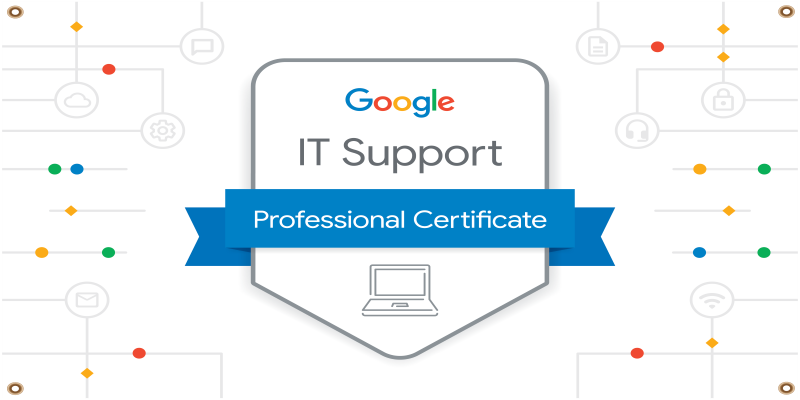Entry-Level IT Courses That Can Lead To High-Paying Roles
Are you considering a career in the tech industry but unsure where to begin? Is it possible to earn a high salary without a computer science degree or years of experience?
Here's some good news: it is.
Some of the most in-demand tech roles today are open to those who start with short, entry-level courses — no fancy credentials required. Let's explore some beginner-friendly IT courses that can unlock exciting and well-paying career paths.
CompTIA A+ — The Classic IT Launchpad
If you’ve ever Googled “how to get started in IT,” chances are you’ve come across CompTIA A+ — and for good reason.
Employers widely recognise this certification, and it serves as a gateway to roles such as help desk technician, IT support specialist, and technical support analyst. These positions may not start at six figures, but they're excellent launchpads. With just 6–9 months of experience, many professionals transition into higher-paying roles in systems administration or network management.
What you’ll learn:
• Troubleshooting hardware and software
• Managing devices and networks
• Basic cybersecurity practices
• How to support Windows, macOS, and mobile platforms
Potential job titles:
• IT Support Specialist
• Help Desk Analyst
• Desktop Support Technician
Average starting salary: $50,000–$60,000
Future growth path: Systems Administrator, Network Engineer, Cloud Support Specialist
Google IT Support Professional Certificate — A Beginner-Friendly Gem

Let's say you don't know much about IT — not even what RAM is or how cloud storage works. The Google IT Support Certificate on Coursera is specifically designed for individuals like you.
This course walks you through the basics in a practical, no-jargon way. Plus, it's from Google, which lends credibility. It usually takes around 3–6 months to complete, and once you do, you'll be qualified for entry-level tech support roles.
Why it stands out:
It's affordable (sometimes even free), self-paced, and doesn't assume prior knowledge. Employers like Walmart and Cognizant even recognize it directly in their hiring practices.
What you’ll learn:
• Basics of computer assembly and troubleshooting
• Networking and security fundamentals
• Customer support skills (which are critical in IT support)
Average salary after 1–2 years of experience: $60,000–$70,000
Next steps: Cloud certifications or cybersecurity training to boost your earning potential
Cisco Certified CyberOps Associate — Breaking Into Cybersecurity
Cybersecurity has become one of the hottest fields in tech, with salaries to match — and the barrier to entry isn’t as high as you might think.
If you're interested in security but don’t know where to start, Cisco’s CyberOps Associate certification is a strong entry point. It teaches you how cyber attacks work, how to detect threats, and how to respond.
Why it matters:
Cybersecurity roles are booming. There are more jobs than qualified people to fill them. Once you get your foot in the door, the growth is fast — and so is the salary climb.
What you’ll learn:
• How to monitor networks for threats
• Understanding firewalls, VPNs, and other security tools
• Intro to Security Operations Centers (SOC)
Entry-level job titles:
• Security Analyst (Tier 1)
• SOC Analyst
• Incident Response Technician
Entry-level salary: $60,000–$75,000
Future roles to target: Cybersecurity Analyst, Ethical Hacker, Security Consultant — with salaries easily reaching $100K+
AWS Certified Cloud Practitioner — Getting Started with the Cloud

Cloud computing is everywhere whether it's Netflix streaming shows or businesses storing files on Amazon Web Services (AWS), the cloud powers much of the digital world.
The AWS Certified Cloud Practitioner certification is an excellent first step for those curious about cloud technology but not yet ready to dive deep into programming or engineering roles.
Who it’s for:
Beginners who want to understand cloud basics and work in cloud support, sales engineering, or customer success for tech products.
What you’ll learn:
• Core AWS services and their uses
• Cloud architecture basics
• Billing, pricing, and support models
Possible job titles:
• Cloud Support Associate
• Technical Account Manager (TAM)
• Cloud Sales Specialist
Entry-level salary: $55,000–$70,000
Pathway to: AWS Solutions Architect, DevOps Engineer, Cloud Engineer (often $100K+ roles)
Google Data Analytics Certificate — Jumping Into the World of Data
If you love working with spreadsheets, solving puzzles, or making sense of numbers, data analytics might be your calling.
The Google Data Analytics Certificate (available on Coursera) has become a go-to course for newcomers looking to enter one of the fastest-growing segments of tech. What’s great is you don’t need a math degree or any coding experience to get started.
What you’ll learn:
• Using spreadsheets and SQL to analyze data
• Creating dashboards in Tableau
• Communicating findings in clear visual formats
Beginner-friendly roles:
• Junior Data Analyst
• Operations Analyst
• Business Intelligence Assistant
Starting salary: $60,000–$70,000
High-growth potential: Mid-level data analysts can earn $90K–$120K, and data science roles can go well beyond that.
Meta Front-End Developer Certificate — For Aspiring Web Developers
Want to create websites that look good and work? The Meta (formerly Facebook) Front-End Developer Certificate covers HTML, CSS, JavaScript, and React — the building blocks of most modern websites.
This course is ideal if you’re leaning more toward coding than system support or hardware. You don’t need to be a genius programmer to start — just consistency and curiosity.
What you’ll build:
• Interactive web pages
• Responsive layouts for mobile devices
• Small projects that can go straight into your portfolio
Jobs to aim for:
• Junior Front-End Developer
• Web Designer
• WordPress Developer
Starting pay: $60,000–$75,000
With 2+ years of experience, You could move into roles that pay $90K–$110K, especially if you learn backend tech like Node.js or databases.
Your First Course Could Be a Career Game-Changer
Here’s the bottom line: You don’t need to spend years in school or rack up student debt to break into tech.
What you do need is:
• A clear focus
• The right entry-level course
• A bit of dedication and curiosity
Whether it’s cloud, cybersecurity, support, or development, there’s an entry point waiting for you. And from there? The sky’s the limit. Many professionals start with these beginner certifications and build into careers they never imagined — complete with remote flexibility, great pay, and long-term growth.





